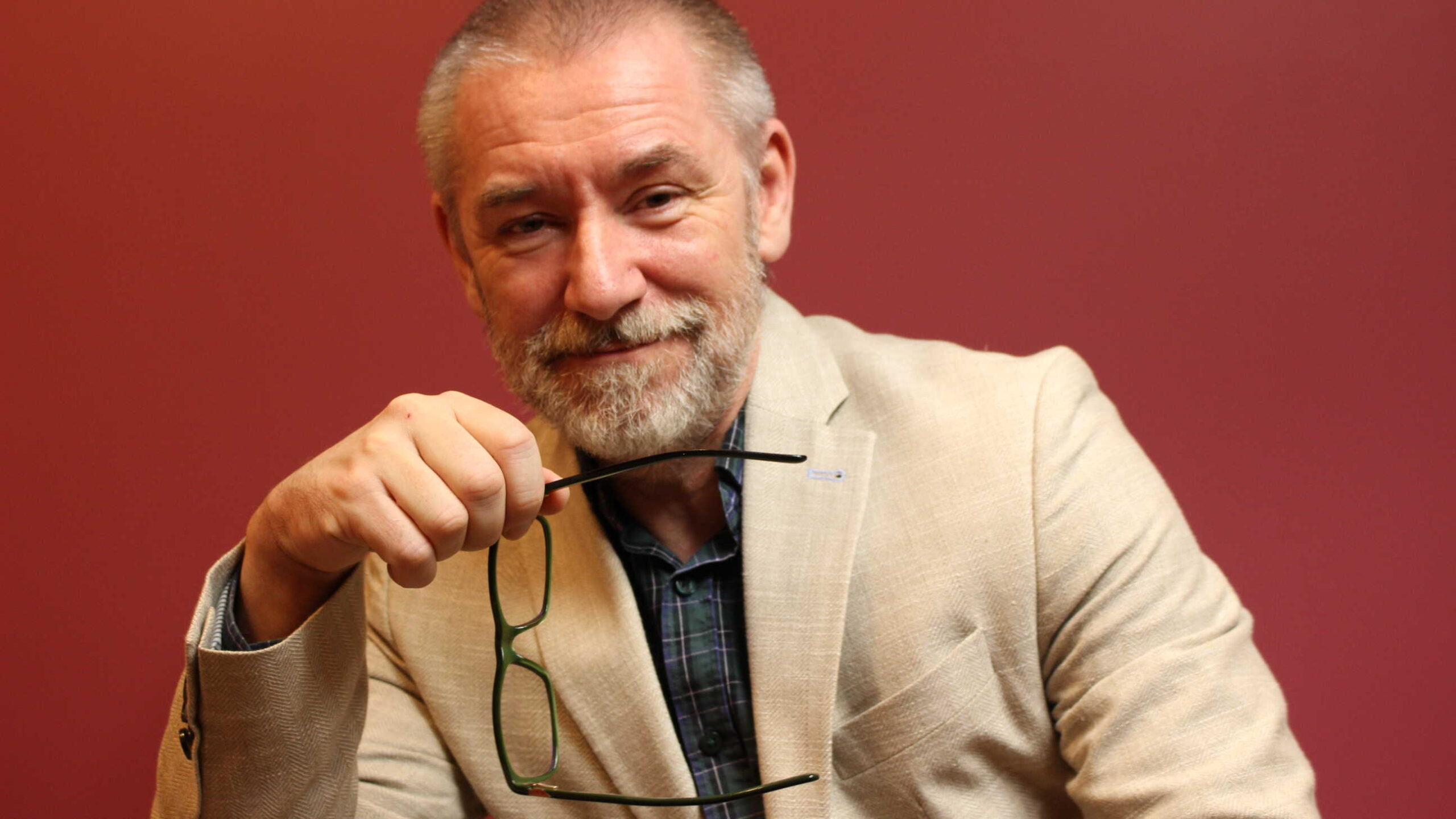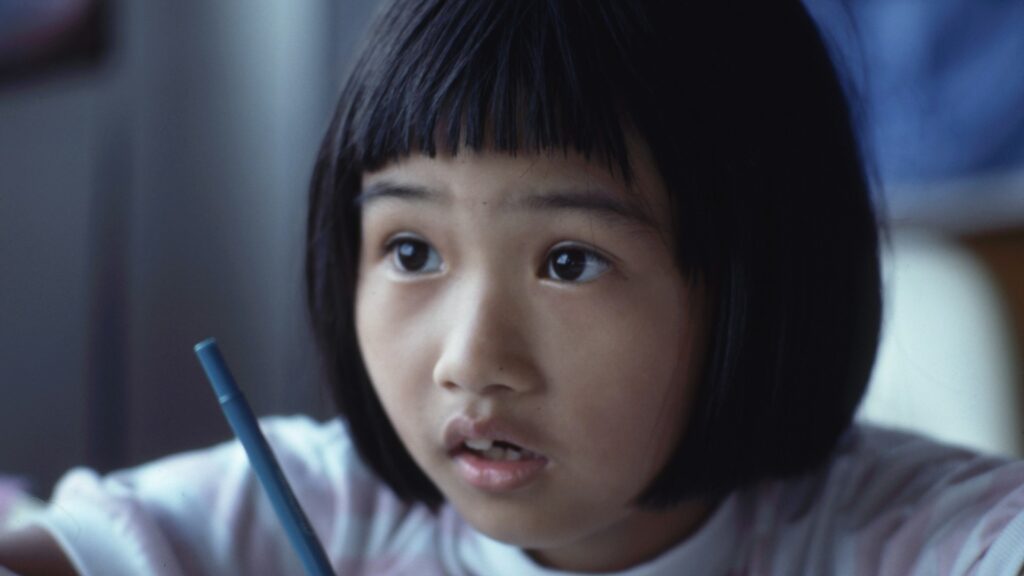Science
Lost on the Moon for 60 Years: AI Joins the Search
23 February 2026

“In education, it’s the journey that counts, not the destination. But I have the impression that today we’re doing the exact opposite – focusing on the success that we’ve defined ourselves and that must be achieved in the shortest possible time,” says Marek Kaczmarzyk, biologist, neurodidactician, and professor at the University of Silesia, in conversation with Katarzyna Sankowska-Nazarewicz.
Katarzyna Sankowska-Nazarewicz: The term “burnout” is most commonly associated with emotional overload caused by work. We rarely think of it in the context of school learning. However, recent social campaigns indicate that the problem exists, and more teenagers are calling for help.
Marek Kaczmarzyk*: I believe that teenagers have been reaching out to us for the past two or three decades, but only recently have we begun to truly listen.
What are they crying out about?
They are overwhelmed by excessive demands and frustrated because they cannot meet these expectations. Let me give you an example: if we take textbooks for any high school grade and stack them on top of each other, the pile will exceed 1,000 pages. Looking at it realistically – no young person can memorize such an amount of information in ten months. And it’s not about a lack of willingness, but rather the limitations of memory physiology and the mechanics of our brain function not being able to handle such a task. And what do we adults do? We look at these books and say, “Well, yes, it can’t be done, but you know what? Let’s try.”
And in the end, we hold them accountable for whether they succeeded. These unrealistic goals and failed efforts create frustration in young people, which can be extremely harmful to their brain health.

Why is that?
When we examine this state through neuroimaging, it becomes clear that the brain activity patterns in frustration and physical pain are very similar. There are, however, two differences. First, when we are frustrated, it does not physically hurt because there is no projection to the prefrontal cortex, the conscious part of our brain.
However, the same limiting processes occur in the brain as those caused by physical pain. Our relational capabilities also change. Naturally, when something hurts us for a long time, we do not feel like engaging in relationships or taking on new challenges. Our cognitive competencies also plummet, and the brain suggests: avoid, flee, or if that fails, fight.
Translating this to the school environment – if I am frustrated for an extended period of time due to academic failures, it will, on a neurophysiological level, become a trigger for states akin to pain. My brain will automatically activate avoidance mechanisms.
We recommend: Education Needs to Move Beyond Rankings. A Critical Look at PISA, PIRLS and TIMSS Tests
What is the second difference?
When we get injured, endorphins are released in the brain within seconds, reducing the sensation of pain. But in the case of frustration and other types of psychological pain related to stress or rejection, endorphins are not released. This means the brain does not physiologically defend against the intensity of the pain and does not block the processes that trigger it.
If a frustrated teenager, by chance or through a peer’s suggestion, discovers that endorphins raise pain thresholds and thus help alleviate psychological suffering, what method will they find to make school and failures less annoying?
They will drown out one pain with another. Increasingly, teenagers are doing this. According to an analysis by the Empowering Children Foundation, the rate of self-harm among children and adolescents in Poland has increased by over 130% in recent years.
From this perspective, self-harm is not the precursor to complex mental health problems in our children but rather their method of self-defense. I feel that we, adults, do not understand these processes at all.
Of course, someone might argue that we are also in a constant state of overload and that what we call burnout has become a norm in modern life. Because, colloquially speaking, we have created such a world. However, we forget that with today’s pressure from parents and teachers, teenagers are in an even more difficult situation because they do not have as stable nervous systems as adults.
In his book Burnout-Kids: Wie das Prinzip Leistung unsere Kinder überfordert (“Burnout Kids. On the Pressure of Achievement and the Pursuit of Success”), Michael Schulte-Markwort demonstrated that student burnout is just a step away from burnout-induced depression, which afflicts about 20% of teenagers today. He also highlighted several destructive mechanisms that we continually test on our children. One of these is “leveling up.”
From a neurobiological perspective, such practices are disastrous. It is perplexing why we pretend that a group of individuals of the same age, such as a class, is a natural group. These are children who differ significantly from one another and develop at individual paces. Yet we continue to be surprised that a school curriculum designed for a homogeneous group causes frustration and discouragement in some students.
Consider mathematics as an example. Mathematical thinking is a type of cognitive brain activity that requires the activation of structures that mature very late. For instance, we are only ready to carry out the process of fractionation around the age of twelve. However, in Polish schools, we introduce fractions when children are ten years old. This means that in a class of 30, 80% of children will not understand fractionation as a mathematical process. Not because they don’t want to focus or practice, but because their brains are not yet ready for it.

There is another problem. Imagine a child who is potentially a mathematical genius, but whose brain matures particularly late. For the first few years of contact with mathematics, they experience failure after failure and are constantly frustrated. As a result, when their brain matures, they will feel only aversion to the subject. They may never realize they are a genius in this field. It’s worth considering how many brilliant mathematical minds we may have lost because we convinced them they were poor at math before their brains matured.
How can such talents be reclaimed?
History has shown that many brilliant minds did not fare well in the early stages of education. But at some point in their lives, they met someone who recognized and helped develop their talent.
If I could work with such a person, discouraged by mathematics, I would take them back to the fourth-grade level and gradually, motivatingly, introduce them to increasingly complex topics. Such a person has the potential to reach the level of a high school graduate within a few weeks, and the level of a theoretical mathematician within the next year.
We recommend: Violence: A Daily Reality for Many Children
You’re describing a method of small steps, while many parents employ the opposite method – throwing children into the deep end.
In other words, it doesn’t matter that you can’t swim; you’ll learn when you’re drowning. When someone is drowning, their survival instinct kicks in. However, without basic competencies, it is unfortunately ineffective, and such a person will drown.
When someone is thrown into the deep end, or presenting a young person with tasks they believe are impossible to perform, the aforementioned escape mechanism and stress are triggered, completely blocking the hippocampus.
This is a structure in the brain that acts as a gateway to long-term memory. So if a child wakes up terrified because today it’s square roots again, which they don’t understand, and the teacher quickly becomes irritated and shouts, such a stress reaction will practically prevent them from learning.
What, then, can we do to help children learn while safeguarding their mental well-being?
In education, the journey itself is paramount, not the destination. However, I sense that today we are doing the exact opposite – we are focused on success as we have defined it ourselves, which must be achieved in the shortest possible time. If we compare our children’s education to a journey, it resembles a subway ride. We put them on an underground train, knowing where they should change lines and where they should arrive. The children don’t look around because they are solely focused on completing the task. Besides, there’s nothing to see outside the window anyway.
If, however, we try to think about education differently and offer children a bus journey, by looking out the window they have a chance to see something inspiring: a landscape or an advertisement for an exhibition they didn’t know about. The decision to take a closer look and get off where they hadn’t planned before could change their lives.
And if they walk, it’s even more likely that they’ll discover something that best suits their needs and abilities, rather than our ambitions. Quoting Professor Tadeusz Sławek,
In life, the most important things are the “in-between-views”.
The best things happen to us when we turn our gaze away from the goal someone else has set for us. We then notice what is truly important to us.
We recommed: The Magic of Biography. Why Are We Fascinated by Other People’s Lives?
Holistic Think Tank, guided by the results of its research conducted two years ago in 10 countries worldwide, developed a list of 10 skills to prepare young people for life in a changing world. Among them are flexibility, community-mindedness, agency, curiosity about the world, and effective communication. What would be on your list?
All the skills you mentioned are in our nature and are crucial for life in society. Schools should simply not interfere with acquiring these competencies. I advocate finding an educational space for a child that will be “theirs” – one that allows them to develop freely, at an appropriate pace, and to the best of their abilities.
Looking at society as an ecosystem, we see that only one population characteristic guarantees our safety in the future. That is diversity. François Jacob, a French geneticist, wrote in his book The Possible and the Actual that diversity is a way of protecting what is probable.
We don’t know what challenges our children will face in 20 years, and we can’t design a person who will be able to respond to them. By living in a diverse and cooperative society, we can expand our potential beyond our individual limits. This diversity ensures that in times of crisis, someone will always be available to address critical issues.
* Marek Kaczmarzyk is a neurodidactician, memeticist, teacher, and lecturer with a doctorate in biological sciences and a professorship at the University of Silesia. A science popularizer, he has authored numerous articles and books.
Among the most notable works are The Tension Zone: A Natural History of Conflict with Teenagers, School of Neurons: On Adolescents, Compromises, and Upbringing, Unique: The Biology of Exceptionality, and School of Memes: Towards Evolutionary Didactics.
His area of expertise is the evolutionary, neurobiological, and memetic foundations of learning, teaching, and upbringing. His training sessions and lectures have reached tens of thousands of teachers and educators worldwide.
Translation: Klaudia Tarasiewicz
Polish version: Nierealne cele budzą w dzieciach frustrację. Jak to wpływa na ich mózgi?


Science
22 February 2026

Zmień tryb na ciemny